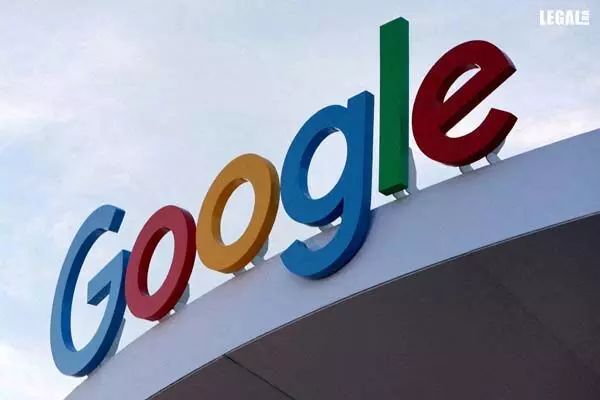- Home
- News
- Articles+
- Aerospace
- Artificial Intelligence
- Agriculture
- Alternate Dispute Resolution
- Arbitration & Mediation
- Banking and Finance
- Bankruptcy
- Book Review
- Bribery & Corruption
- Commercial Litigation
- Competition Law
- Conference Reports
- Consumer Products
- Contract
- Corporate Governance
- Corporate Law
- Covid-19
- Cryptocurrency
- Cybersecurity
- Data Protection
- Defence
- Digital Economy
- E-commerce
- Employment Law
- Energy and Natural Resources
- Entertainment and Sports Law
- Environmental Law
- Environmental, Social, and Governance
- Foreign Direct Investment
- Food and Beverage
- Gaming
- Health Care
- IBC Diaries
- In Focus
- Inclusion & Diversity
- Insurance Law
- Intellectual Property
- International Law
- IP & Tech Era
- Know the Law
- Labour Laws
- Law & Policy and Regulation
- Litigation
- Litigation Funding
- Manufacturing
- Mergers & Acquisitions
- NFTs
- Privacy
- Private Equity
- Project Finance
- Real Estate
- Risk and Compliance
- Student Corner
- Take On Board
- Tax
- Technology Media and Telecom
- Tributes
- Viewpoint
- Zoom In
- Law Firms
- In-House
- Rankings
- E-Magazine
- Legal Era TV
- Events
- Middle East
- Africa
- News
- Articles
- Aerospace
- Artificial Intelligence
- Agriculture
- Alternate Dispute Resolution
- Arbitration & Mediation
- Banking and Finance
- Bankruptcy
- Book Review
- Bribery & Corruption
- Commercial Litigation
- Competition Law
- Conference Reports
- Consumer Products
- Contract
- Corporate Governance
- Corporate Law
- Covid-19
- Cryptocurrency
- Cybersecurity
- Data Protection
- Defence
- Digital Economy
- E-commerce
- Employment Law
- Energy and Natural Resources
- Entertainment and Sports Law
- Environmental Law
- Environmental, Social, and Governance
- Foreign Direct Investment
- Food and Beverage
- Gaming
- Health Care
- IBC Diaries
- In Focus
- Inclusion & Diversity
- Insurance Law
- Intellectual Property
- International Law
- IP & Tech Era
- Know the Law
- Labour Laws
- Law & Policy and Regulation
- Litigation
- Litigation Funding
- Manufacturing
- Mergers & Acquisitions
- NFTs
- Privacy
- Private Equity
- Project Finance
- Real Estate
- Risk and Compliance
- Student Corner
- Take On Board
- Tax
- Technology Media and Telecom
- Tributes
- Viewpoint
- Zoom In
- Law Firms
- In-House
- Rankings
- E-Magazine
- Legal Era TV
- Events
- Middle East
- Africa
Justice Department To Figure Out How Google Should Boost Online Search Competition

Justice Department To Figure Out How Google Should Boost Online Search Competition
The ruling is a major win for antitrust enforcers, who brought several cases against Big Tech companies
The US Department of Justice (DoJ) will outline what kind of actions Google should be ordered to take to restore competition in online search.
Recently, a federal court ruled that Google had an illegal monopoly in online search.
Its smaller rivals pleaded before the court to force Google to spin off its Chrome browser or prohibit it from continuing to pay billions of dollars to make its search engine the default on devices including Apple's iPhone.
The proposals of the Justice Department are a step in a landmark case, having the potential to reshape how Americans find information on the internet. This happened after a judge observed that Google, which processes 90 percent of US internet searches, built an illegal monopoly.
The ruling of Judge Amit Mehta is a major win for antitrust enforcers, who over the past four years, brought several cases against Big Tech companies.
Meanwhile, Google stated it would appeal, and that its search engine had won users through its quality. It faced robust competition from Amazon and other sites where users searched for goods or services directly and could choose other search engines as their default.
However, some companies competing with Google have called for a breakup.
Reviews site Yelp, which sued Google in August, said that spinning off Google's Chrome browser and AI services should be dealt with. It wanted the search giant to be prohibited from giving preference to its local business pages, which compete with Yelp.
Adam Epstein, president and co-CEO of search ad company adMarketplace, said the threat of ordering Google to sell off parts of its business could be used as a way to enforce less drastic remedies.
Epstein added, "Google is not going to have the incentive to comply unless it has the Damocles' sword of divestiture hanging over it."
Also, rival search engine company DuckDuckGo has requested the court to direct Google to license its search results to competitors who could then build and improve their products.



